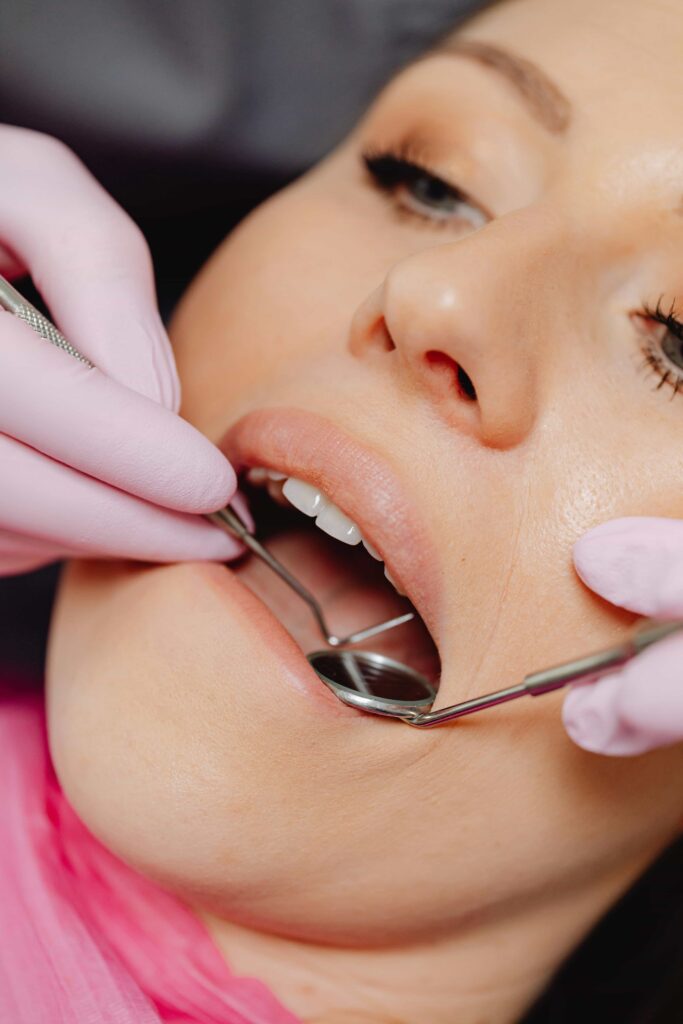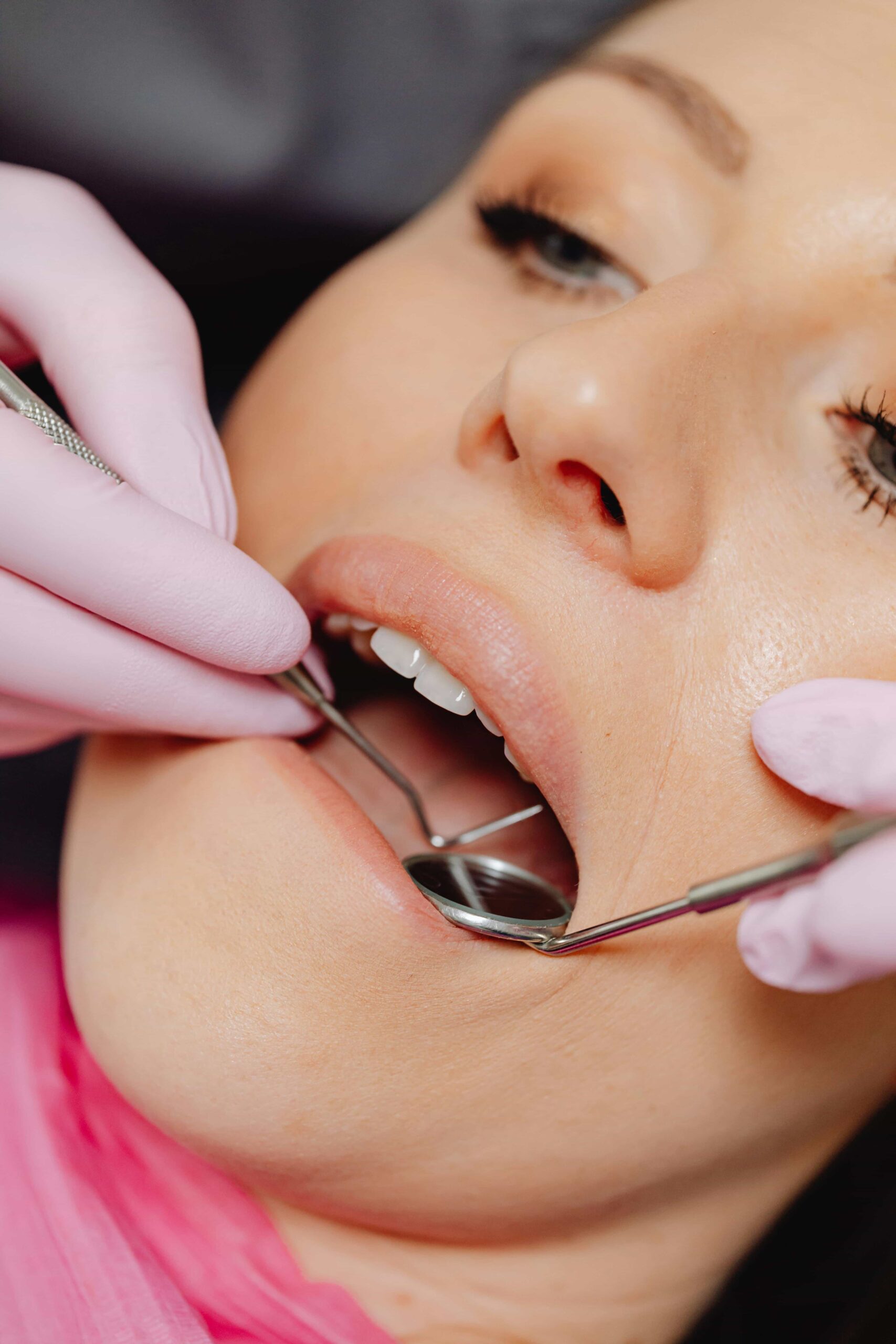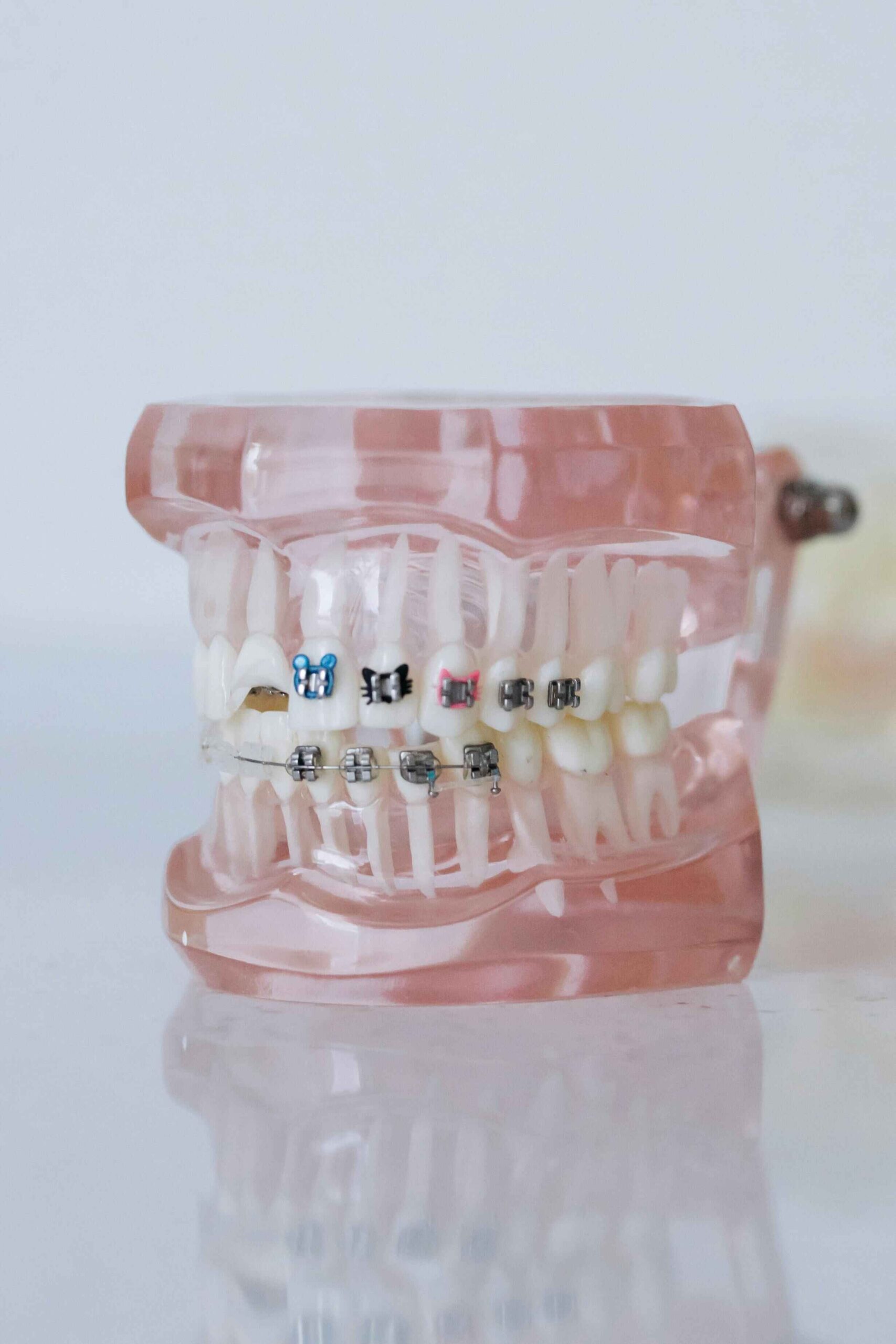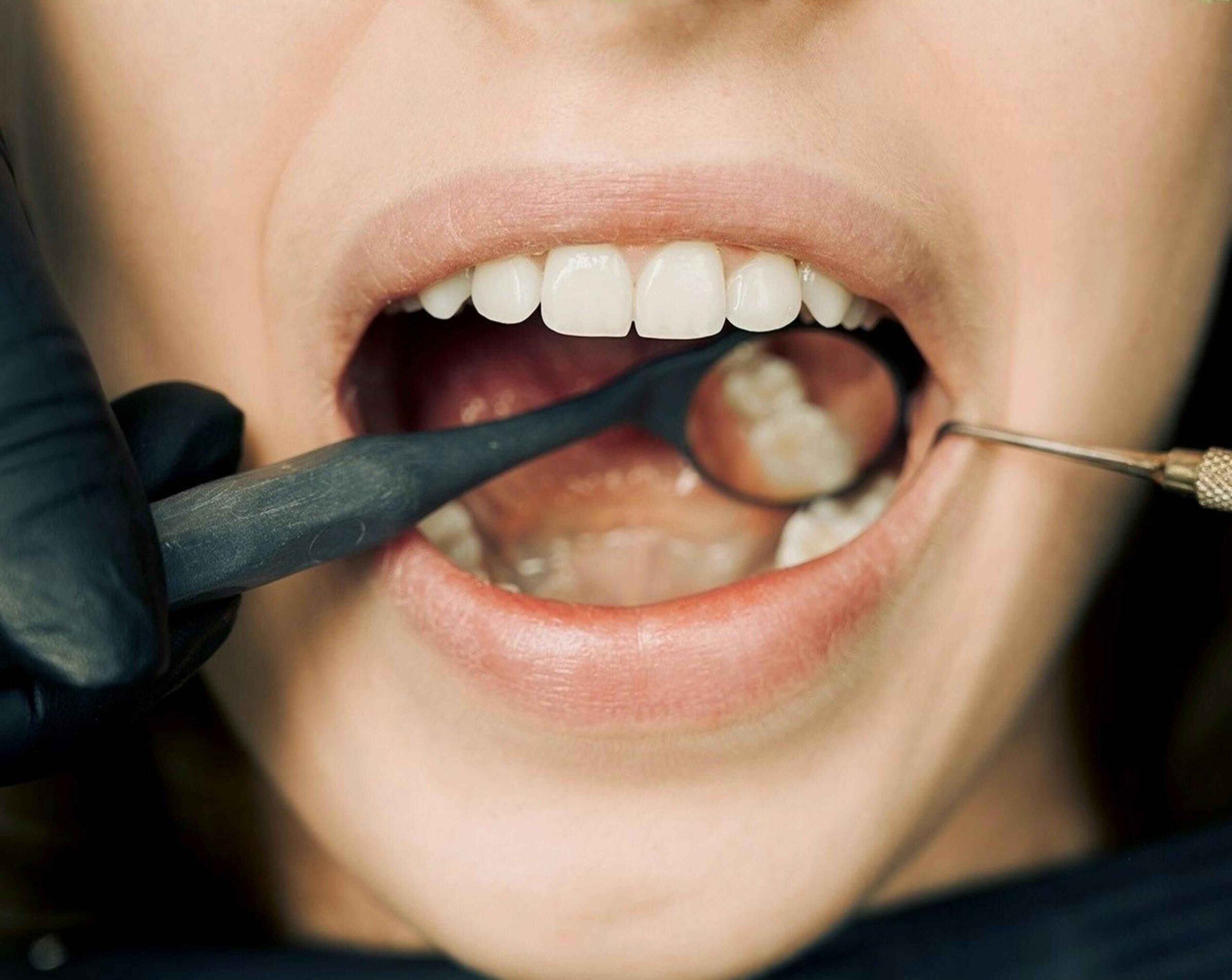Orthodontic treatment is a common dental procedure performed on both children and adults. This type of treatment involves the use of braces or other orthodontic appliances to correct misaligned teeth and improve the overall appearance of one’s smile. However, before starting orthodontic treatment, many patients wonder whether they need to get cavities filled beforehand.
The simple answer is yes – it’s important to have any cavities treated before getting braces or any other orthodontic appliance.
Here’s why and how it impacts your orthodontic care.
Key Takeaways
- Typically, yes, you need to get your cavities filled before getting braces. This helps ensure that your teeth are healthy and able to support the braces without any issues.
- It’s important to maintain good oral hygiene during orthodontic treatment, including brushing and flossing regularly.
- Avoid foods that can cause damage to your braces, such as hard or sticky foods.
- If you have fillings, you can still get braces.
- Regular visits to the orthodontist are crucial for monitoring progress and making necessary adjustments.
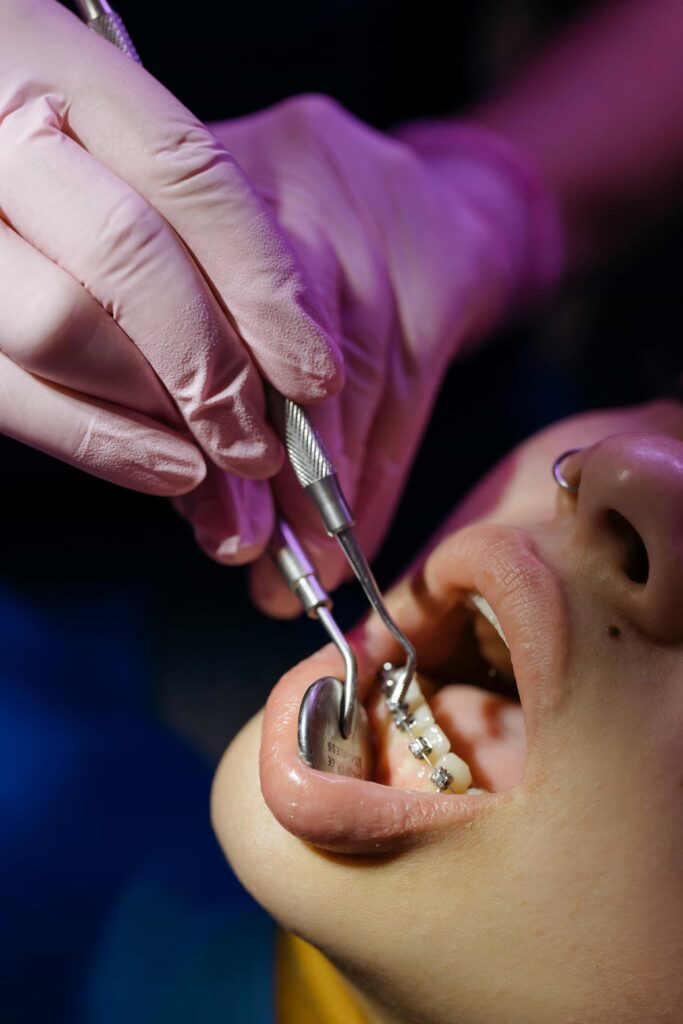
Why Cavities Should Be Filled Before Braces
Cavities are areas of decay in your teeth that weaken their structure. Placing braces over untreated cavities can lead to several dental issues.
Here’s why it’s necessary to fill cavities beforehand:
Prevent Further Decay
Braces create tighter spaces around your teeth, making it harder to clean properly. If a cavity isn’t filled, this limited access can allow it to worsen over time. Filling it early ensures your teeth remain strong and healthy during treatment.
This is especially important since braces are on for an extended period. If left untreated, cavities can continue to decay and cause significant damage to your teeth.
Maintain Oral Health During Braces
Orthodontic treatment can last anywhere from 18 months to 3 years. Untreated cavities can cause discomfort and potentially lead to more serious dental problems, like oral infections, if left unchecked during this time.
The good news is that with proper oral hygiene habits, you can maintain your dental health and reduce the risk of developing cavities while wearing braces.
Seamless Braces Placement
For braces to be effective, your teeth need to be in good condition. A cavity could interfere with the proper placement of brackets or bands, potentially delaying your treatment.
Additionally, oral infections like gum disease or abscesses can also cause complications with brace placement. For this reason, it’s important to maintain good oral health before and during your braces treatment.
Can You Get Braces with Cavities?
While you can technically start orthodontic treatment with small cavities, your orthodontist will usually recommend filling them first. Addressing the issue early prevents complications during your treatment.
If the cavities are minor, they can often be filled quickly without delaying your braces. However, larger cavities or more serious dental issues may require extended treatment from your dentist before braces can be applied.
Can You Get Braces with Fillings?
Absolutely! Having fillings doesn’t mean you can’t get braces.
In fact, many patients get braces after completing dental work, including fillings. Your orthodontist will ensure your fillings don’t interfere with the brackets or bands and that your treatment plan works seamlessly with your dental health needs.
6 Steps to Prepare Your Teeth for Braces
Getting braces is an exciting step toward achieving a healthier, straighter smile. However, preparing your teeth properly beforehand is essential to ensure the best results and a smooth treatment process.
Here are six important steps to get your teeth ready for braces.
1. Schedule a Dental Exam
Visit your dentist for a thorough checkup. They’ll assess your overall oral health, check for cavities, and confirm if your gums and teeth are strong enough for braces.
2. Fill Cavities Beforehand
If cavities are found, get them filled before your orthodontic treatment begins. This foundational care ensures no underlying issues interfere with your braces.
3. Clean Your Teeth Professionally
Ask your dentist for a professional cleaning to remove plaque and tartar buildup. This step will give your orthodontist a clean surface to work with and help your braces stick well.
4. Discuss Your Medical and Dental History
Share your medical and dental history with your orthodontist. They’ll factor this information into your customized treatment plan to address any special conditions you may have.
5. Follow Your Orthodontist’s Preparation Plan
Your orthodontist might recommend specific preparation steps, such as tooth extractions or spacers, to create the ideal environment for your adult orthodontic treatment. Trust their guidance to get the best results.
6. Maintain Great Oral Hygiene
Keep brushing and flossing daily, making sure to clean hard-to-reach areas. Developing strong hygiene habits before braces will set you up for success during treatment.
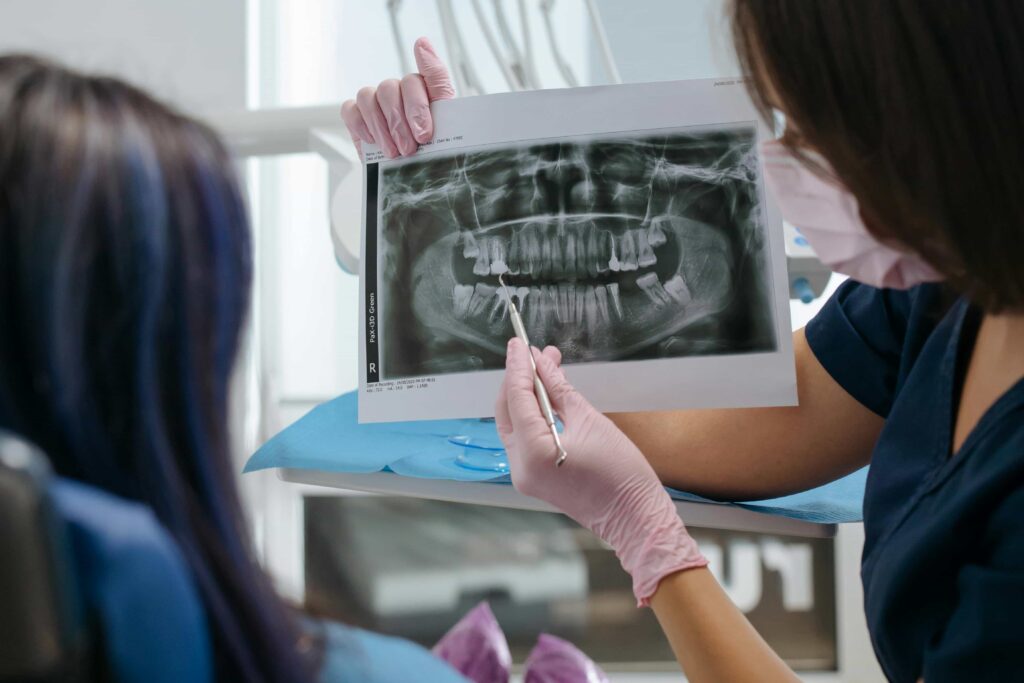
FAQ
Q: Will getting braces hurt?
A: It is normal to experience some discomfort or soreness when first getting braces, but the level of pain varies for each individual. Your orthodontist will provide tips and techniques to manage any discomfort during treatment.
Q: How long will I need to wear braces?
A: The length of time you will need to wear braces depends on your specific case. On average, treatment can take anywhere from 18 months to three years. Your orthodontist will give you an estimated timeline during your consultation.
Q: Do you have to get cavities filled before braces?
A: It is recommended to get any necessary dental work, such as fillings or cleanings, done before starting orthodontic treatment. This will ensure that your teeth are in good health and can properly support the braces.
Q: If you have fillings, can you still get braces?
A: Yes, having fillings does not disqualify you from getting braces. However, your orthodontist may need to take extra precautions when placing the brackets and wires around the filled teeth. It is important to communicate with your orthodontist about any existing dental work before starting treatment.
Visit Wagner Orthodontics for a Complimentary Consultation
At Wagner Orthodontics, we are committed to providing personalized care to ensure the best results for your smile. If you’re wondering, do you have to get cavities filled before braces, the answer is typically yes, as treating any existing dental issues is crucial before starting orthodontic treatment.
With advanced technology and friendly care, we provide shorter treatment times, flexible financing options, and customized orthodontic plans. Whether you’re starting braces or considering clear aligners, we’ll guide you every step of the way.
Schedule your free consultation at our Longview or Chehalis locations today and take the first step toward the smile you’ve always wanted!

